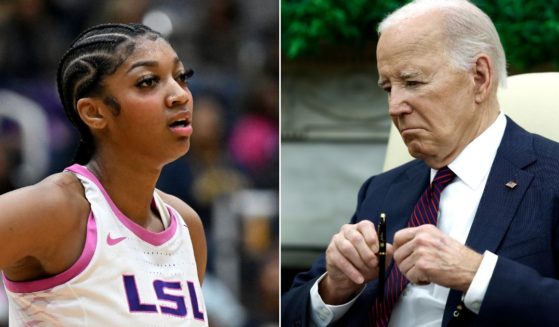Walmart CEO Warns What Woke Prosecutors Will Soon Force His Stores to Do
Thefts from Walmart stores have been increasing and loose prosecution practices in some places may be to blame.
“If that’s not corrected over time, prices will be higher and/or stores will close,” Walmart CEO Doug McMillon told CNBC.
Walmart, which has a reputation for strict in-store security, has increased those efforts in certain stores.
“Theft is an issue,” McMillon said. “It’s higher than what it has historically been and we’ve got safety measures, security measures that we’ve put in place by store location.
“I think local law enforcement being staffed and being a good partner is part of that equation, and that’s normally how we approach it.”
In California, legal changes allow shoplifting to be classified as a misdemeanor for thefts up to $950 in value. And in Democrat-controlled cities, with what the Heritage Foundation calls “rogue prosecutors,” misdemeanors are not even prosecuted.
That’s an invitation for thieves to just walk out the door with merchandise as has been well-publicized in San Francisco.
“We’re talking multimillions of dollars that are being stolen,” Rachel Michelin, president of the California Retailers Association told Fox News a year ago, “And this money then in turn is being used by crime syndicates both in the U.S. and in other countries to fund some really bad activities.”
Already some retail chains, such as Walgreens, are closing stores and Target has said profits have shrunk by $600 million in 2022 as a result of thefts.
Store thefts also have affected more than company revenues; a year ago Best Buy’s CEO Corie Bary said it was “traumatic” for employees to experience what is going on in their stores.
Retailers have always realized there would be some theft, both from shoplifters and even employees. But such losses have been limited to the point that it has gone under the relatively benign name of “shrink” or “shrinkage.”
Basically, there will always be some loss of merchandise through theft, defects, breakage, and even by it becoming shopworn as customers handle it but don’t buy it.
But there’s nothing benign about what is currently happening.
Retail shrink is now approaching a $100 billion dollar problem, according to the National Retail Federation’s 2022 Retail Security Survey which covered 2021.
Shrinkage for that year was $94.5 billion, up from $90.8 in 2020. Most of that lost was through external theft linked to organized retail crime (ORC), the report said.
“In fact, retailers, on average, saw a 26.5% increase in ORC incidents in 2021.”
And it’s more than just theft.
“Beyond the loss of goods, these incidents are increasingly alarming. Eight in 10 retailers surveyed report that the violence and aggression associated with ORC incidents increased in the past year,” according to a summary of the security survey.
The summary also said retailers are beefing up security measures, as was indicated by Walmart’s McMillon.
But that costs money.
And when retailers spend money, everybody knows that it’s ultimately the customers (read: hard-working Americans) who will pay.
Truth and Accuracy
We are committed to truth and accuracy in all of our journalism. Read our editorial standards.












